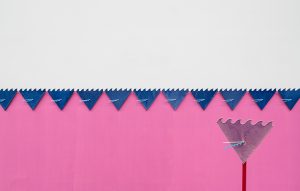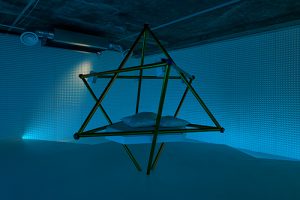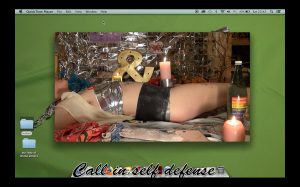“As much Weltschmerz (German word for “world pain”) as I feel in this moment, I’m continually humbled and glad to be human at this time in history,” writes Clay AD via email, when I ask them if the recent weeks have revealed surprising new modes of organising. “‘Cause there is such power in everyone who is saying no (through rent strikes and working strikes for example), who are helping their neighbours and loved ones and strangers, and to be able to witness all the creativity and resilience that humans contain in the midst of a global trauma.”
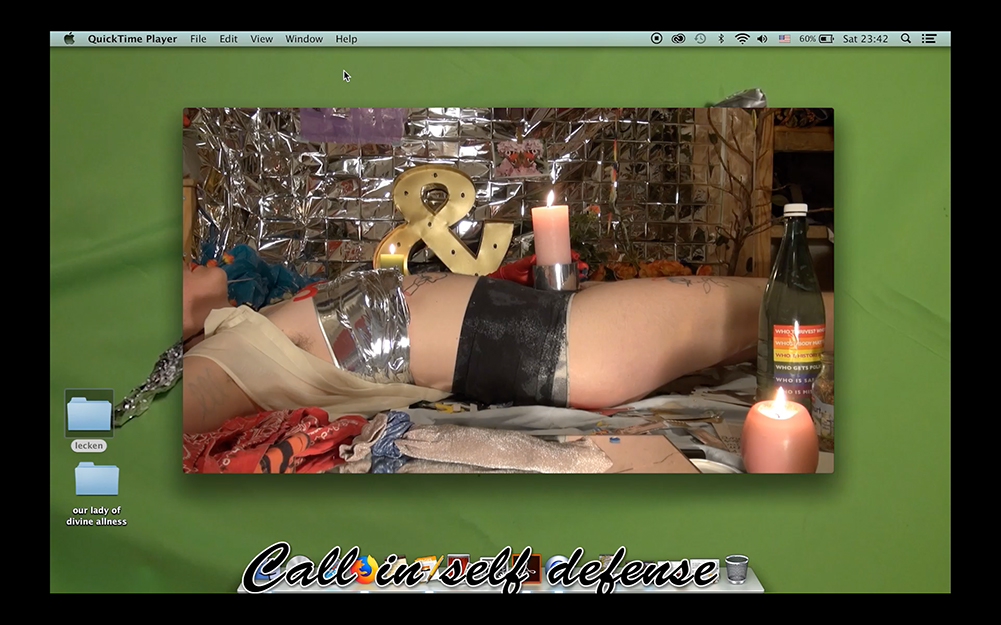
Based in Berlin, Clay AD is an artist working across writing, sound, video and movement, with a practice that uses the tools of sci-fi and speculative fiction to explore illness, ecology and activism. They are also a somatic bodyworker and tarot reader. Clay’s 2018 book Metabolize, If Able, first published by Monster House Press and later by Arcadia Missa, tells of a near future world in which human clones reliant on medication navigate structures of surveillance and biotech corporate hegemony. Written in the format of a letter correspondence, the novel melds queer intimacy and hope with sharp critical commentary on the political power structures governing healthcare and our bodies, making it a poignant read amidst the current pandemic.
We discussed topics spanning collectivity, capitalism and the life giving joys of being among plants and animals under lockdown in the lead up to Clay’s guest edit of the ICA Daily newsletter this coming Monday, May 4.
** There’s a great moment in your book Metabolize, If Able, where during a meditation exercise focusing on “extrabiological” objects like medication or food, the reader is asked to “think of how those objects that you ingest are directly connected to the state through production, control, accessibility and/or [a/e]ffect.” These issues are very much in the public consciousness now. What do you hope the pandemic can teach us about the state and our bodies?
Clay AD: The short answer is that I hope this collective experience brings about more distrust in the state, the police and corporations and more trust in our bodies and one another.
I think it’s really clear that the authoritarian measures being enacted globally right now are very frightening, and that the state and police will use this as an opportunity to clamp down further with violent measures and surveillance on marginalised communities in the name of “public safety” and “health”.
On the other hand in the coming months as lockdown measures loosen-up this will mostly be done for the health of the economy rather than the health of the most vulnerable members. I think we’re in a really tricky situation (globally at this point) where many folks are scared and precarious and want a larger entity to guide. Yet I think the guides to actually follow are those in the community leading mutual aid efforts and the healthcare workers who have an intimate idea of the severity of this virus and can give informed direction, rather than larger state and federal governing bodies.
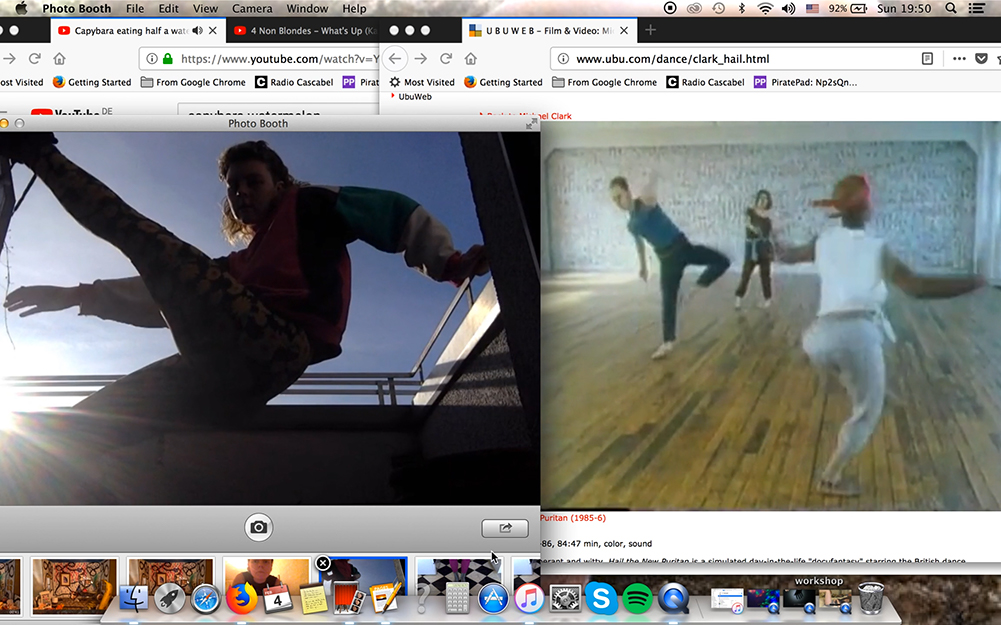
Also maybe important to mention that the meditation came from my own experience of being dependent on expensive prescription drugs since a young age, and knowing that it’s common for those with my disease to be on drugs for life. It made me aware of the reality from a young age — and this is the situation for lots of sick and disabled people, trans people, etc — that my health is completely reliant on complicated chemical substances that are outside of my control to produce.
I this feel very viscerally at the moment the vast failures of global capitalism to meet needs as supply and demand in terms of PPE (personal protective equipment) for healthcare workers, and even the basic materials to make tests for Covid, but you could also expand that to other drugs and items like toilet paper and food. I think strategising how to be as autonomous as possible, such as folks who are making and distributing drugs themselves etc, feels like the logical next step to me. Two groups that come to mind are Four Thieves Vinegar Collective and GynePunks. Both groups are working towards autonomy in health through different means.
** I’m interested lately in the notion of a techno-fix. The current situation really problematises this — a new vaccine alone won’t solve all the systemic issues of coronavirus. How do you think our cultural relationship with technology (thinking of drugs as a technology) will be affected by the pandemic?
CA: Some questions that immediately come to mind in terms of the vaccine: how are they gonna distribute it? Will it be accessible for all? Especially those who are houseless, poor, sick/disabled, BIPOC, queer/trans or otherwise marginalised?
I worry that there will be gatekeeping around the vaccine. I worry about how they will go about testing vaccines, who they will test it on and what kind of consent will exist for those people. In the States I wonder how uninsured will get access to the vaccine. I guess I just have lots of questions and hesitations bubbling up.
Another thing I’ve been trying to understand more about is the tracking apps that many places are in the process of developing, which seems to be the interim solution while we wait for a vaccine to be developed to mediate the “return to normal”. I see this way of “reopening” society so suss because it will essentially create classes of people, those who are “healthy” and those who are various degrees of “risky”.
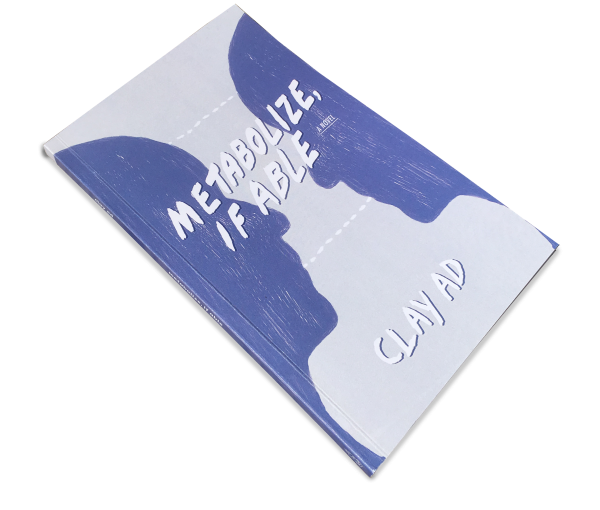
And amongst all of that I feel like we are on the verge of a mental health crisis. As the economy suffers (and is suffering) folks will feel increasing pressure and precarity; also from isolation and lack of contact. I’m a somatic bodyworker and know from that work how important touch and connection is for wellbeing. I feel really grateful that so many healers have moved their work online and that emotional health, at least in my internet bubble, feels like a present topic.
** One thing that coronavirus has thrown a wrench in the works of is individualism. Quite capitalistic and patriarchal ideas of being out for yourself, internalising issues, survival of the fittest seem to go out the window at a time like this. What are some of the most interesting ways that you’ve seen collectivity play out in recent weeks?
CA: I think the entire situation has brought up and really challenges notions of neoliberal individualism in terms of health and wellness culture; the concept that if you just work hard enough you’ll be healthy doesn’t apply at all to this situation at all for a few reasons (and is just completely bogus in general obviously).
First off the way this virus spreads it forces a paradigm shift from thinking of individual health to communal health and responsibility. Most people who are temporarily healthy or able bodied have not ever had to think in the way it demands. In the sick and disabled community that I’m a part of in Berlin and also through the internet even seemingly basic ideas of handwashing to protect one another’s immunity is not new. They are practices we have been doing so we can keep those with compromised immune systems as well as possible since long before Covid. However, this is a huge culture shift for many. I think ideas of harm reduction and safer sex are a nice way to translate the thinking and I’ve seen some cute memes and infographs about the comparison online.
Ideally this will create some kind of lasting shift. My world building, speculative future side would love if this ushers in a completely different orientation to individualism, i.e. the end of it, and brings in a larger cultural importance of centring community health, but let’s see. It’s all about scale I guess.
** I’m drawn to your video ‘I’m in Training Don’t Kiss Me #1’ and the phrase “time-traveling choreographies” you use to describe the work. It brings to mind the live streams and video chats that are such a part of life nowadays, but skews the real time aspect of them. How important do you think it is right now to be able to share things in real time with one another (in the absence of sharing the same space)?
CA: I made that video when I was having a flare-up of my illness a couple of years ago and stuck inside/in bed a lot. I was missing the larger dance scene, and also feeling pretty upset at how ablest many structures that existed for being a dancer and participating in dance felt at the time. So I just started moving in bed and filming myself. I love Micheal Clark and his punk attitude, his cartoony bubble aesthetics via working with Leigh Bowery. And honestly I love the movement in that piece [Hail the New Puritan], totally wild but with flawless precision. So I guess a lot of mashing-up our work on-screen was attempting to visualise my feelings about how I could never be that and my disappointment of that reality, and my disappointment at ablest dance culture’s expectation of that. Through the video I tried to edit in grace and beauty from my bed/house dancing, and just sort of swim in the paradox of it all.
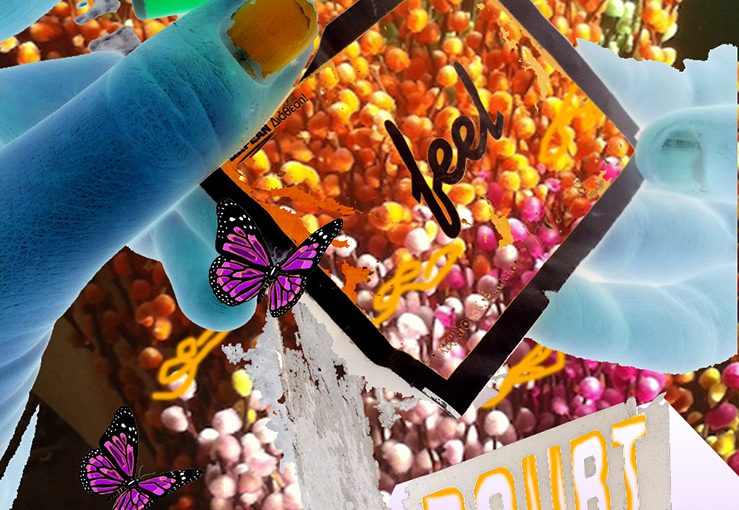
I think humans are great at adapting, it’s really one of our best qualities. I have to say it has been a big conversation in sick and disabled spaces I move through (all online now, most of them online all the time) about whether the incredible expansion of accessibility will stay after this is “over”. Some friends who are housebound most of the time are feeling less isolated than ever, simply because people have more time and there are more ways to meet without leaving the house. I think physical contact is important, touch is really important and I am deeply missing hugging friends, holding hands, cooking and dancing together. I miss giving bodywork. But a silver lining of this situation seems to be that there is going to be a tangible moment to point towards where many things were much more accessible and be able to argue that it is possible. Many jobs can be done from home, group socialising and organising is possible, and events can be streamed.
** I was listening to a discussion between Elvia Wilk and the artist Anicki Yi asking whether the virus will force us to challenge how we might think of our bodies as “individual entities” to which the virus is an outsider. I’m wondering if you have thoughts on this topic. Do you think the virus can challenge flawed ideas of our bodies as singular and separate from our environments or other organisms?
CA: This sounds like an interesting talk, and I definitely want to listen to it in the future. I have the attention span of a fly right now and am mostly able to only listen to podcasts on astrology at the moment.
But yes, definitely. The virus is making clear something that was already quite present for many sick and disabled folks, that our health as individuals is all interconnected. That care is interconnected, and that to keep the most vulnerable well requires others to change and adapt behaviour. I find a lot of hope in sick/disabled online communities trying to find solutions to issues of drug shortages for example, like hydroxychloroquine — it’s used to treat folks who have lupus and rheumatoid arthritis — by sharing and tracking it down for one another.
Locally I am feeling this in my day-to-day intensely. I’ve felt deeply grateful for the plants and animals that live and hang out by the balcony and courtyard, at my friends apartment where I’ve been isolating. A punky one-legged blue tit and many bees visit to eat from the flowers and bird-feeder. I’ve felt really big urges to grow food this spring, collect nettles, and just generally be connected to the land I’m living on in a more thoughtful way. The beings are very life giving at the moment and I’m grateful to be in contact with them.**
Clay AD guest edits the ICA Daily newsletter on May 4, 2020.
